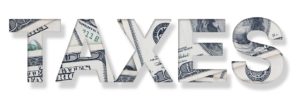 In 2018, the U.S. Supreme Court issued a decision that changed the face of business and expanded application of gross receipts taxes like the Business Privilege Tax (BPT). Prior to 2018, the Supreme Court had a simple and straightforward policy as to whether a state could tax business activity: if the taxpayer had no physical presence within a state, then that state had no right to impose tax on the business. The U.S. Supreme Court cemented this approach in its decision for Quill v. North Dakota.
In 2018, the U.S. Supreme Court issued a decision that changed the face of business and expanded application of gross receipts taxes like the Business Privilege Tax (BPT). Prior to 2018, the Supreme Court had a simple and straightforward policy as to whether a state could tax business activity: if the taxpayer had no physical presence within a state, then that state had no right to impose tax on the business. The U.S. Supreme Court cemented this approach in its decision for Quill v. North Dakota.
Since Quill was decided in 1992, however, something became more integral to Americans’ everyday lives – the Internet. With the advent of online retail and commerce, small boutique shops and large retailers could advertise and sell to customers all over the globe. A store in one state could have sales in others, and those states were unable to impose most state and local taxes, unless an employee traveled to them in an official business capacity.
Enter South Dakota v. Wayfair in 2018, where the U.S. Supreme Court held in a 5-4 decision that states can mandate sales tax on businesses that have more than 200 in-state transactions or $100,000 of in-state sales or exchanges. With this newfound ability, state jurisdictions promptly began requiring online vendors to remit sales and use taxes.
Not surprisingly, local taxing authorities have followed suit. Pennsylvania’s municipalities are no exception and have begun imposing BPT on Internet sales, if the business passes certain thresholds.
Certain Pennsylvanian municipalities impose BPT on the privilege of conducting business within their geographical limits. Although it varies between municipalities, the BPT is typically levied on gross receipts, with “business” being defined broadly as any trade, occupation, service or commerce. Historically this tax has been limited to businesses with a physical presence in the jurisdiction, whether on a permanent or temporary basis. Municipalities are now taking advantage of federal law changes to more aggressively tax online retailers that do not have a physical presence but do have a considerable Internet presence.
Pennsylvania municipalities have been particularly aggressive with BPT in recent years, sometimes even attempting to impose BPT nonprofit institutions like hospitals and healthcare organizations. In Pennsylvania, nonprofit institutions that qualify as “institutions of purely public charity” are exempt from BPT. Whether a particular organization qualifies as an “institution of purely public charity” has been called into question in recent years.
If you have questions about Pennsylvania sales and use tax, Internet sales or business privilege tax, please contact one of our Corporate Business & Banking attorneys for review and assitance.






